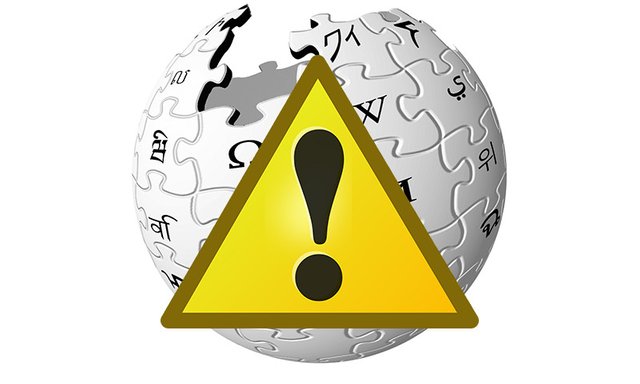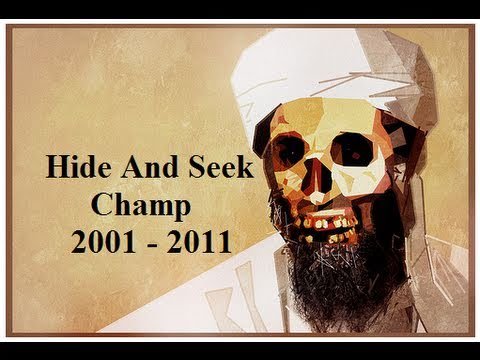Wikipedia is not a good place to start researching controversial topics

Wikipedia is a great tool which we can use to begin our research on just about any subject. The problem is, many people are under the impression that, when they go to Wikipedia, they are getting an unbiased account of events. Normally, with controversial subjects, there will be one side which is better represented on Wikipedia, and if you use it for that, you probably will not get the full story.
The death of Osama bin Laden
As an example, take this article about the death of Osama bin Laden - or maybe we should say, the most recent death of Osama bin Laden. Fox news reported Laden's death as early as 2001. In 2002, CNN reported that the president of Pakistan believed Laden was dead, mentioning that he had been unable to get treatment for his kidney disease. These are just a couple of Laden's obituaries, others include funeral orations and reports from Israeli intelligence. You can read more about that here.

So, considering Wikipedia has an entire article on the death of Osama bin Laden, we could reasonably expect that it would include some of these previous notices of his death. How many are included? Zero. Only the official story is included in the Wikipedia article.
9/11 and managing perceptions

Theories about 9/11, which aren't the official one, are listed as "conspiracy theories" - obviously an emotionally charged term. I would call that "poisoning the well" - before you even read the article, you have a concept that these are wacky ideas. A friend told me in Wikipedia's defence that, "conspiracy theory" is accurate in this case - the ideas are literally theories about people conspiring. Of course, if it's that simple, then the official story should be listed under the same banner, because again, it is literally a theory about a conspiracy.
A bias in the facts
When I made the criticism about Wikipedia being biased, another friend told me that Wikipedia is not biased, and he knows because all of the sources are there, and they have factual information. My response - facts and being factual of itself does not remove bias. I can tell you a story using nothing but facts, but still give you a skewed version of events. The way facts are presented can be biased, and, perhaps more importantly, the facts which you leave out can show your bias.
Who's running the show?
Considering all the powerful, well-funded organisations that exist in the world today, and considering Wikipedia's reputation as an unbiased, user-editable encyclopaedia, is it possible that these groups might use it to adjust public opinion, according to their agenda? We know they have the motive to present the facts in their own way, and we know they have the resources. For many of you, this idea is entirely uncontroversial. But for some of you, you might not have ever considered that large pharma companies and governments would try to change your opinion, in any way other than putting ads on the TV. Think about it - why wouldn't they do that? The winners write the history books, as the saying goes. Those books may be being written right before your eyes.
Conclusion
Wikipedia is great if you want a launchpad for an uncontroversial subject so you can find out what the deal is. On any controversial subject, you're not going to get the full story. There is almost always one side of the debate which controls which facts come up on Wikipedia - often the "skeptical" , or the government side. If you use Wikipedia as your only starting point, you will be consistently mislead.
the examples of this are everywhere. also on snopes and editindia and more. here's something to think about,
the CIA created the term "conspiracy theories" see here: http://www.zerohedge.com/news/2015-02-23/1967-he-cia-created-phrase-conspiracy-theorists-and-ways-attack-anyone-who-challenge
then there is this: http://www.abc.net.au/news/2007-08-16/program-shows-cia-behind-wikipedia-entries/642224 which shows that a major contributor to wikipedia edits is the CIA.
then there is this quote by william casey, CIA director 1981, who said, " we'll know our disinformation program is complete when everything the American public believes is false." cited here: https://www.quora.com/Did-William-Casey-CIA-Director-really-say-Well-know-our-disinformation-program-is-complete-when-everything-the-American-public-believes-is-false
this is provided any of these websites are trustworthy.
What? - you mean snopes isn't 100% reliable :) ...
nopes for snopes. i thought i was the only person who doubted snopes. i look up things in the urban dictionary before i go to snopes.
I could not have said it better. Starting with first principles and having a fundamental understanding of logic, grammar, and rhetoric, have done wonders for my mind's ability to see through falsehoods, manipulation, poor thinking, and extremely well-calculated information-twisting.
It is not a small wonder the American Schooling System was designed to leave the Trivium behind.
Thanks Amanda!
Wikipedia is handy for stuff like the specs of computers or cars, but for anything that goes against mainstream programming it is pure propaganda. The diet, nutrition information for example, is 100% bullshit...
Safe to say I didn't get this info off Wikipedia...
http://www.frot.co.nz/design/health/food/
Hahaha its so funny because if one were to do actual research based on logic WITHOUT bias they would come to the conclusion that Wikipedia IS obviously biased and censored.
This is just one of MANY examples how those in power stay in power and those asleep stay asleep.
I won't spend any time arguing any "conspiracy theories here" yet what I can say is that from an objective and logical perspective most of these "conspiracy theories" have at least as much credibility of not more than any story on TV news.
Cognitive dissonance is very difficult to deal with because even when facts are provided that would change the belief they are not even considered but instead labeled and judged as "conspiracy theories"
The plan of those in power is working almost perfectly.
Good article. Keep up the good work.
Thanks Quinn. I started writing this and I thought, gee I could go into a lot of detail, a lot of stuff about Operation Mockingbird, different research about vaccines and other things, but I thought it's best to keep it short.
I still think Wikipedia is great, and I use it for a lot of subjects... But for certain other subjects, it makes me recoil with the way they've somehow phrased something to keep it sounding factual, while actually being... well, something a bit different.
Yes I agree. The point is not to get into all the stuff but to make the point you made. Its a good post.
That's why I think we'll be moving to multi-pedias in the long run: https://steemit.com/philosophy/@alexgr/wikipedia-the-truth-and-the-eye-of-kennedy
Very cool article.
Thanks :D
Neil deGrasse Tyson can't even edit his own Wikipedia entry to show that he is NOT an atheist without some militant atheists coming along and re-editing to claim he is.
This isn't even a controversial or fringe claim. It's simply a statement of his own choice to suspend making a decision either way. It makes me wonder what else is patently false on Wikipedia.
Would a Blockchain based Wikipedia be any better? AI based?
Great example. Though looks like they cleaned this up some time after this interview. They have the exact quote from this clip now.
It definitely illustrates the point. There are people with a firm interest in having others believe their view of the world. Atheists and "skeptics" are definitely a powerful group in that respect.
Could be. Have a look at @alexgr's interesting post on the subject and the comments I and others have left https://steemit.com/philosophy/@alexgr/wikipedia-the-truth-and-the-eye-of-kennedy
Thanks Ken
Fun fact:
English Wikiquote's Mark Twain article lists this quote as misattributed:
"Be careful about reading health books. You may die of a misprint."
https://en.wikiquote.org/wiki/Mark_Twain#Misattributed
Polish Wikiquote lists it as an actual Twain's quote:
"Czytając książki o zdrowiu, uważajcie. Jeden błąd drukarski może was zabić.
Be careful about reading health books. You may die of a misprint. (ang.)"
https://pl.wikiquote.org/wiki/Mark_Twain#C
I think that most of the information on Wikipedia is correct, but you should be really careful abot reading it. And not only on Wikipedia - just be careful while dealing with information.
Yes, I guess that's part of the problem. People give Wikipedia a free pass as an overview of an issue where they wouldn't necessarily expect that of other sources.
Did you look to see if the prior reports of his death were ever written into the account? You can see all the past edits.
I could see editors arguing that those reports belonged in the entry on Osama Bin Laden more than the entry on the death of Osama Bin Laden, however. As they were not about the ACTUAL death.
Still, bias is real everywhere. I think it's pretty clear tho that the bias in Wikipedia, which is no doubt real, is crowdsourced... it's not something created by the Wikimedia staff.
Well, hold on a second. How do you know they weren't?